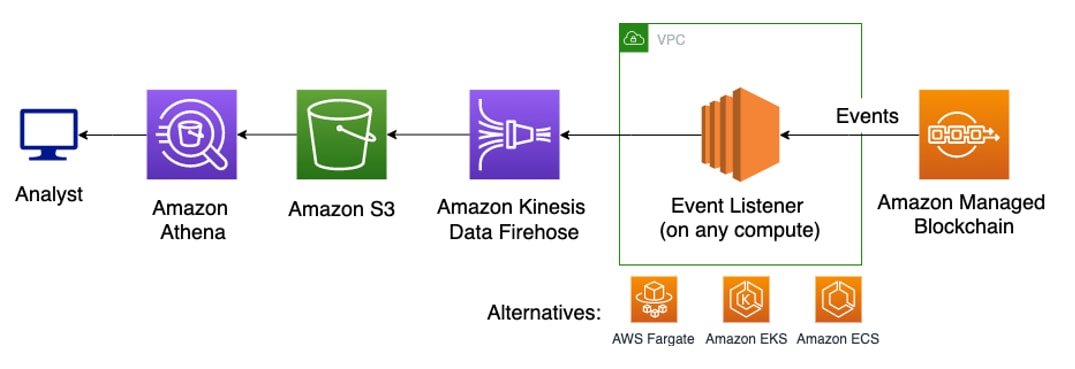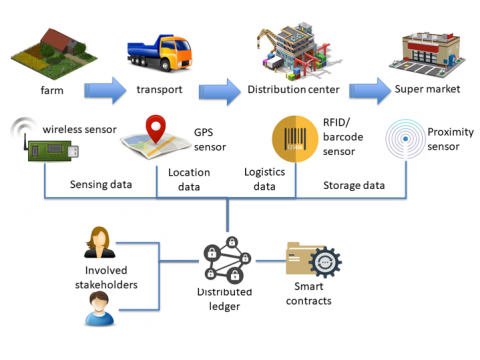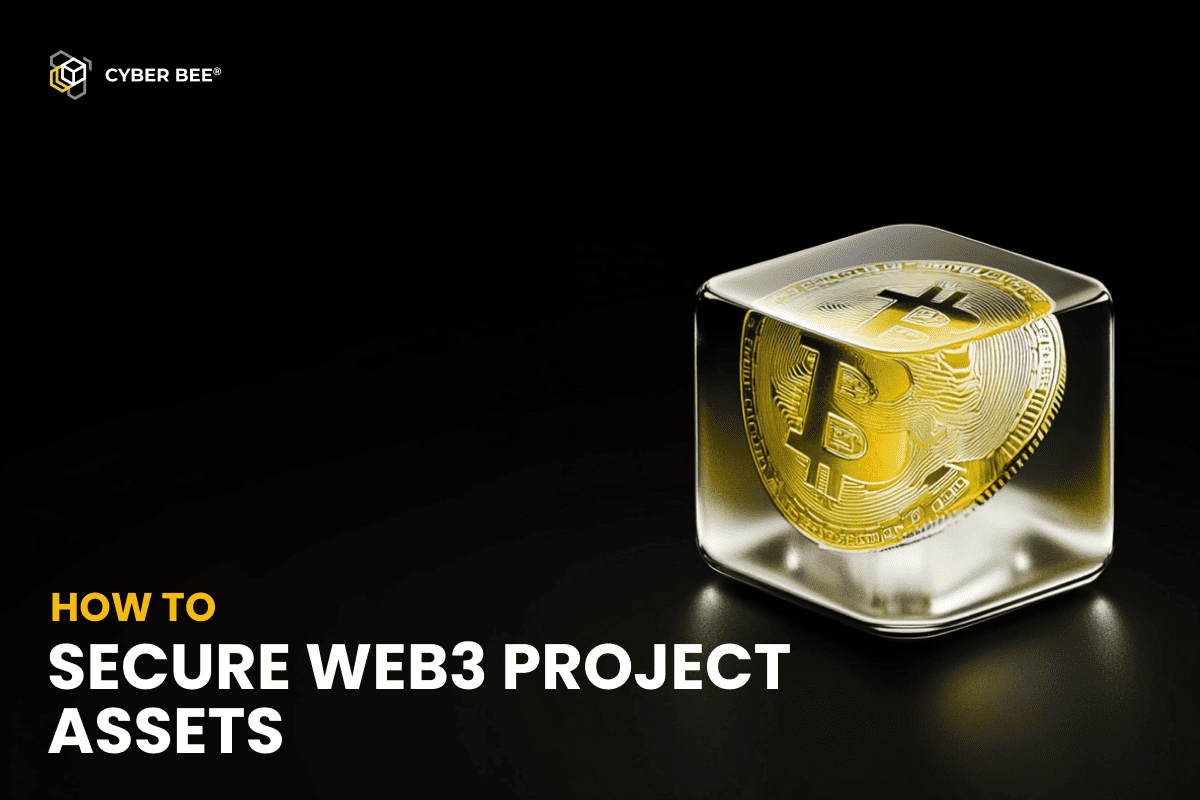In today’s digital landscape, businesses across various industries are seeking ways to leverage blockchain technologies to boost blockchain adoption. While blockchain offers a secure and transparent way to manage data through a distributed ledger system, building and managing their own blockchain systems can be a complex task. This is where Blockchain as a Service (BaaS) comes in.

Source: Freepik
Blockchain as a Service (BaaS) is acting as a major catalyst for boosting blockchain adoption. It functions like a cloud-based service provider, offering enterprise-grade infrastructure with built-in management tools. This simplifies the process for companies to develop and manage their own blockchain applications. These applications can leverage features like secure network isolation and cryptographically verifiable records, ensuring both data security and trust in transactions. By removing the complexity of managing blockchain infrastructure, BaaS empowers businesses to focus on innovation and unlock the transformative potential of this technology.
This article will explore how BaaS empowers businesses to unlock the potential of blockchain. We’ll delve into how BaaS simplifies tasks like developing blockchain-based smart contracts and managing scalable blockchain networks. We’ll also explore how BaaS providers offer plug-and-play services with REST APIs and support services to streamline the development and deployment process.
By leveraging Blockchain as a Service, businesses can build secure and efficient applications that can transform their operations. From tracking shipments in the logistics industry to managing private data in finance, BaaS offers a path towards a future built on trust, innovation, and greater blockchain ecosystem adoption.
Breaking Down Blockchain Technology: The Essentials of Trust and Security
What is Blockchain?

Source: Freepik
Imagine a digital record book, not unlike a spreadsheet, but shared and synchronized across a network of computers. This record book, called a blockchain, is the core of blockchain technology. Unlike a traditional centralized ledger database (think a bank’s server), a blockchain is distributed. This means every computer on the network has a copy of the entire record book, making it tamper-resistant. This distributed nature is what empowers blockchain technology to handle demanding ledger technology workloads. Because the data is spread across the network, it can handle high volumes of transactions and complex data structures, making it suitable for a wide range of applications beyond traditional financial ledgers.
How does this ensure security? Every entry (like a transaction) in the blockchain is linked to the previous one, creating a chain of blocks. To alter a record, you’d need to modify every block in the chain across all the computers in the network, a near-impossible feat with strong encryption protecting the data. This creates a cryptographically verifiable record, ensuring the integrity and security of information stored on the blockchain.
For a deeper dive into how blockchain ecosystems are built from scratch, you can refer to our step-by-step guide.
The Power of Smart Contracts
Now, let’s talk about smart contracts. Imagine self-executing agreements written in code and stored on the blockchain. These smart contracts automatically execute pre-defined terms when certain conditions are met. For example, a purchase agreement could be programmed as a smart contract, automatically releasing funds to the seller upon confirmation of delivery. This eliminates the need for intermediaries, reduces errors, and streamlines processes, making it ideal for various applications in finance, logistics, and beyond.
While blockchain technology offers immense potential, building and managing your own secure and scalable blockchain networks can be complex. This is where cloud-based solutions like BaaS come in, acting as a game-changer. By leveraging cloud-based solutions like BaaS, businesses can bypass the heavy lifting of infrastructure management and focus on the true value proposition: building innovative blockchain applications. We’ll explore Blockchain as a Service and its benefits in the next section.
Blockchain as a Service: Powering Businesses with Blockchain
Traditionally, leveraging the power of blockchain technology has been a daunting task for businesses. Building and managing their own secure blockchain networks requires significant expertise and resources. The costs associated with blockchain development can vary greatly depending on factors like project complexity, desired features, and chosen development team. To get a better understanding of these costs, you can explore our article Blockchain Development Cost.
From Building a House to Renting an Apartment: Simplifying Blockchain Adoption
Imagine you have a groundbreaking idea for a secure and transparent business application, fueled by the power of blockchain technology. However, the technical complexities of setting up your own blockchain network can quickly turn that excitement into frustration. Building and managing a secure, scalable blockchain ecosystem from scratch is no small feat. It requires expertise in juggling numerous components like virtual private clouds (VPCs) for secure communication, event creation and management functionalities, and integrations with various cloud services.

Caption: Building a blockchain network from scratch can involve complex components, like those depicted in this diagram of Amazon Managed Blockchain.
This intricate web of technologies can be a significant barrier to entry for businesses eager to explore the potential of blockchain. Thankfully, there’s a simpler solution: Blockchain as a Service (BaaS). BaaS acts as a convenient service provider, allowing you to “rent an apartment” in the blockchain world. Just like renting an apartment eliminates the need to build a house from the ground up, BaaS removes the burden of managing complex infrastructure. With BaaS, businesses can leverage pre-built infrastructure and tools, freeing them to focus on what they do best: developing innovative blockchain applications that transform their industry. Think of these applications as the furniture and décor that personalize your rented apartment in the blockchain world.
For instance, a company like Walmart could leverage cloud-based solutions through BaaS to develop a blockchain application for their supply chain. This application could track the movement of goods from origin to store in real-time, ensuring transparency and reducing the risk of counterfeit products.
Blockchain as a Service: A Subscription to Trust
BaaS is a cloud-based subscription service that provides businesses with access to secure and robust blockchain networks. These networks are pre-built and managed by the BaaS provider, eliminating the need for in-house blockchain expertise. Blockchain as a Service offerings typically include:
- Infrastructure Management: BaaS providers handle the underlying infrastructure of the blockchain ecosystem, including servers, security protocols, and ongoing maintenance.
- Development Tools: BaaS platforms offer tools and resources to simplify the development process for blockchain applications. This includes pre-built templates, programming languages, and APIs (Application Programming Interfaces).
- Security Features: BaaS providers prioritize robust security measures to ensure the integrity and confidentiality of data stored on the blockchain network. This includes features like encryption, access controls, and key management.
BaaS vs SaaS: Access vs. Applications
It’s important to distinguish BaaS from traditional Software as a Service (SaaS) models. SaaS platforms offer pre-built software applications that businesses can subscribe to and use. In contrast, BaaS provides access to the underlying blockchain technology itself. This allows businesses to develop custom applications tailored to their specific needs and leverage the unique benefits of blockchain technology, such as secure data sharing and automated workflows.
For example, a company like Klarna, a payment service provider, could use BaaS to develop a secure and transparent platform for managing customer transactions. This platform could eliminate the need for intermediaries, reduce fraud, and streamline the overall payment process.
Blockchain as a Service in Action: Transforming Industries
BaaS is not just a technological innovation; it’s a catalyst for industry transformation. By offering a fully managed service with robust blockchain networks, BaaS empowers businesses to leverage the power of blockchain technology without the burden of managing complex infrastructure. This section will explore how BaaS is revolutionizing various sectors.
Revolutionizing Supply Chain Management

Imagine a world where you can track your food from farm to table with complete transparency. BaaS makes this a reality. By creating a single shared ledger on a distributed database, BaaS enables companies to track and trace goods throughout the supply chain. This total data visibility allows for real-time monitoring of product movement, location, and condition.
For instance, a company like Nestle could leverage BaaS to develop a blockchain application for their cocoa bean supply chain. This application could track the journey of cocoa beans from farms in Africa to processing plants in Europe. This not only ensures product authenticity and combats counterfeit goods, but also promotes ethical sourcing practices.
Building Secure Healthcare Systems
The healthcare industry is ripe for the transformative power of Blockchain as a Service. BaaS offers a secure and auditable platform for managing sensitive patient data. Secure transactions with robust data security features like encryption and access controls ensure patient data privacy. Additionally, BaaS facilitates the secure sharing of medical records between authorized healthcare providers, streamlining treatment processes and improving patient care.
For example, a consortium of hospitals could utilize a BaaS platform to create a secure system for sharing patient medical records. This would eliminate the need for patients to carry physical copies of their records and allow doctors from different facilities to access crucial medical history quickly and securely, ultimately leading to better-informed treatment decisions.
Beyond Traditional Finance: The Rise of BaaS in Finance
BaaS is transforming the financial landscape by enabling secure and efficient financial transactions. By eliminating intermediaries and streamlining processes, BaaS can lead to faster settlements and reduced costs. Additionally, BaaS offers the potential for innovative financial applications, such as streamlined trade finance processes.
For example, a bank like Klarna, previously mentioned, could leverage BaaS to develop a secure platform for facilitating cross-border payments. This platform could utilize smart contracts to automate the exchange of funds and documents, reducing the time and complexity associated with traditional trade finance processes.
These are just a few examples of how BaaS is transforming industries. As BaaS adoption continues to grow, we can expect to see even more innovative applications emerge across various sectors.
BaaS: Powering Businesses with Blockchain Advantages
BaaS unlocks the power of blockchain for businesses by offering secure, pre-built networks. This eliminates the complexity of managing blockchain infrastructure and empowers businesses to build innovative applications. Here’s how BaaS benefits businesses:
- Enhanced Trust: Blockchain’s tamper-proof ledger creates a single source of truth, fostering trust in business interactions (e.g., tracking goods in a supply chain).
- Unwavering Security: Inheriting blockchain’s robust security, BaaS safeguards sensitive data with encryption and access controls.
- Streamlined Efficiency: BaaS acts as a shared platform, enabling seamless data exchange and automation through smart contracts (e.g., automating logistics processes).
By simplifying blockchain adoption, BaaS empowers businesses to build trust, enhance security, and achieve greater efficiency.
BaaS: Powerhouse Potential, Persistent Challenges
BaaS offers a compelling path to leverage blockchain technology, but challenges remain. While BaaS empowers businesses with secure, scalable networks for building innovative applications, limitations exist.
- Scalability Bottlenecks: Current blockchain technology struggles with high transaction volumes, leading to slow processing times. Solutions like sharding and layer-2 protocols are being explored to improve scalability.
- Regulatory Uncertainty: Evolving regulations surrounding blockchain create uncertainty for businesses. Companies considering BaaS need to stay informed and choose providers prioritizing compliance across different regions.
- Interoperability Hurdles: Different BaaS platforms may not seamlessly exchange data, limiting businesses operating in complex ecosystems with diverse blockchain solutions. The industry is working on standards and protocols to bridge this gap.
Despite these challenges, the BaaS ecosystem is brimming with potential. Major players like Amazon Managed Blockchain, Microsoft Azure Blockchain Services, and IBM Blockchain are actively shaping the future of BaaS by developing standardized tools and protocols, paving the way for a more scalable, secure, and interoperable landscape. This will ultimately empower businesses to unlock the full potential of blockchain solutions. For instance, Amazon Managed Blockchain offers a range of features specifically designed to simplify blockchain adoption for businesses, including support for popular protocols like Ethereum Blockchain and Hyperledger Fabric, automatic network scaling, and integration with other AWS services. This allows businesses to focus on developing innovative applications that leverage the power of blockchain technology without getting bogged down in the complexities of managing their own blockchain infrastructure.
Building a Future on Trust: The Promise of Scalable Blockchain Networks
BaaS is poised to revolutionize how businesses operate. By offering secure blockchain networks, BaaS empowers companies to build transformative applications that foster trust, transparency, and efficiency. As BaaS adoption grows and technological hurdles are addressed, it holds the potential to unlock the full potential of blockchain technology across various industries. This will ultimately pave the way for a future built on secure, transparent, and collaborative business ecosystems.



